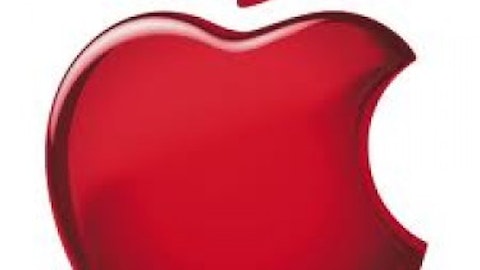In the face of escalating criticism over platform fragmentation, Google Inc (NASDAQ:GOOG) made a promise more than two years ago at Google Inc (NASDAQ:GOOG) I/O 2011 about Android:
So today we’re announcing that a founding team of industry leaders, including many from the Open Handset Alliance, are working together to adopt guidelines for how quickly devices are updated after a new platform release, and also for how long they will continue to be updated. The founding partners are Verizon Communications Inc. (NYSE:VZ), HTC, Samsung, Sprint, Sony Ericsson, LG, T MOBILE US INC (NYSE:TMUS), Vodafone Group Plc (ADR) (NASDAQ:VOD), Motorola and AT&T Inc. (NYSE:T), and we welcome others to join us. To start, we’re jointly announcing that new devices from participating partners will receive the latest Android platform upgrades for 18 months after the device is first released, as long as the hardware allows … and that’s just the beginning.
The search giant was collaborating with carrier and OEM partners to ensure that new Android devices would receive software updates for at least 18 months after launch, with the disclaimer that the hardware would support it. These middlemen have always held back Android software updates, and Google Inc (NASDAQ:GOOG) wanted them to commit to improving their ways.
HTC and Samsung are among the two most prominent Android vendors right now. While HTC has fallen hard on the times at the hands of Samsung’s marketing barrage, the Taiwanese company is looking to cut costs. As part of that, HTC has now backtracked on its plans to upgrade its One S to the newest version of Android, 4.2.2 Jelly Bean — just months after promising to upgrade the device. In February, HTC said it would be upgrading a slew of devices, including the One S.
The One S was launched just 14 months ago, and HTC’s confirmation that the device will stay on an older version of Android and HTC’s Sense overlay falls short of the 18-month commitment that it made with Google Inc (NASDAQ:GOOG). The company doesn’t make any excuses about the hardware not being able to handle it, which wouldn’t be believable considering how recently HTC was planning on upgrading the One S. The One S has respectable specs anyway. This is purely a cost-saving move.
The situation shows how difficult it is for Google Inc (NASDAQ:GOOG) to manage Android’s fragmentation, despite its best efforts. Nexus and Google Inc (NASDAQ:GOOG) Editions aren’t be plagued by these issues, as software updates will be delivered directly from Google, but when it comes to the more common subsidized Android models Google can’t always keep its promise through no fault of its own.
The article HTC Just Broke Google’s Promise originally appeared on Fool.com is written by Evan Niu, CFA.
Fool contributor Evan Niu, CFA, owns shares of Verizon Communications. The Motley Fool recommends Google and Vodafone Group and owns shares of Google.
Copyright © 1995 – 2013 The Motley Fool, LLC. All rights reserved. The Motley Fool has a disclosure policy.





